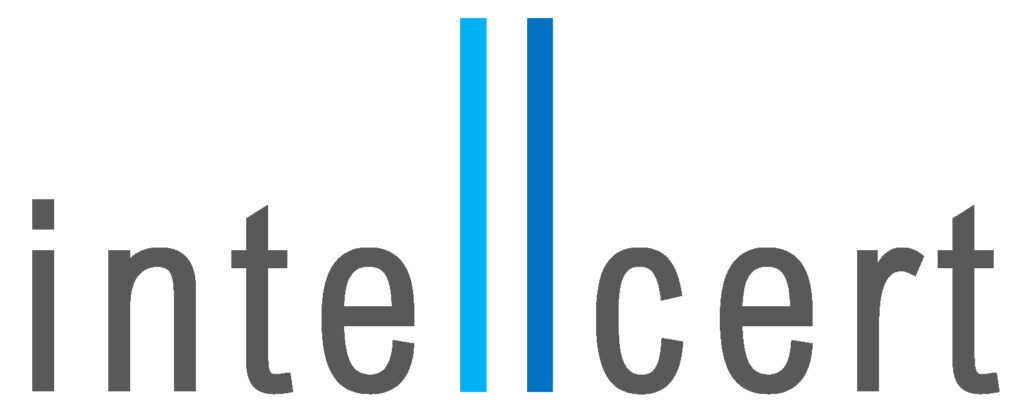Frequently Asked Questions about ISO 27001 Certification
What does ISO 27001 include?
ISO 27001 is an international standard for Information Security Management Systems (ISMS). It sets out the requirements that organizations must meet to protect their information and data from threats and to ensure the integrity, confidentiality, and availability of their information. The standard covers various aspects, including:
- Organizational context: This involves understanding the context and relevant aspects of information security and responding to them.
- Leadership: Organizational leaders must demonstrate strong leadership and commitment to information security.
- Planning: This includes setting security objectives and goals and developing plans to achieve these objectives.
- Support: The organization must ensure it provides the necessary resources and trains and supports employees to ensure information security.
- Operation: Processes are established and implemented here to implement security measures and ensure information security.
- Performance evaluation: The organization must monitor, measure, analyze, and evaluate its information security performance.
- Improvement: Continuous improvements must be made based on assessments and analyses to continuously improve information security.
ISO 27001 is designed to help organizations protect their information security, minimize risks, and strengthen the trust of their customers and stakeholders.
What are the objectives of an Information Security Management System (ISMS) according to ISO 27001?
An ISMS according to ISO 27001 has several objectives:
- Information Protection: The ISMS aims to ensure the confidentiality, integrity, and availability of information and data.
- Risk Management: The ISMS aims to help identify, assess, and treat risks to ensure information security.
- Compliance with Legal Requirements: The ISMS aims to ensure that the organization meets all relevant legal and regulatory requirements in the field of information security.
- Continuous Improvement: The ISMS aims to promote continuous improvements to increase the effectiveness of information security measures.
- Employee Engagement: Through training, communication, and involvement of employees, the ISMS aims to ensure that everyone in the organization can contribute to information security.
- Business Continuity: The ISMS aims to ensure that business operations can be maintained even in the face of threats and disruptions.
What is ISO 27001 certification?
ISO 27001 certification is a formal process whereby an independent certification body verifies and confirms a company’s compliance with the requirements of the ISO 27001 standard. It serves as evidence that the company’s Information Security Management System (ISMS) conforms to internationally recognized standards and that the company actively endeavors to protect its information.
Who needs ISO 27001 certification?
ISO 27001 certification is beneficial for organizations of any size and industry that need to protect information and data. Particularly, companies processing sensitive information such as financial data, customer data, intellectual property, and personal data can benefit from certification. Typically, companies in industries such as financial services, healthcare, information technology, e-commerce, and government agencies are interested in ISO 27001 certification.
How is ISO 27001 certification obtained?
To become ISO 27001 certified, an organization must go through a series of steps:
- Preparation: The organization evaluates its current information security practices, sets security objectives, and develops an ISMS.
- Implementation: The ISMS is implemented, and employees are trained and involved in security measures.
- Internal Audit: Before certification, the organization conducts an internal audit to ensure the ISMS is effective.
- Certification Audit: An independent certification body conducts a certification audit to verify the ISMS’s compliance with ISO 27001 requirements.
- Certification: If the company meets all requirements, ISO 27001 certification is issued to them.
What are the benefits of ISO 27001 certification?
ISO 27001 certification offers several benefits, including:
- Enhanced Trust: ISO 27001 certification signals to customers and stakeholders that the company takes the protection of their information seriously and adheres to internationally recognized best practices for information security.
- Risk Mitigation: By implementing an ISMS, organizations can identify, assess, and treat risks related to information security to minimize threats.
- Compliance with Legal Requirements: ISO 27001 certification helps organizations meet legal and regulatory requirements in the field of information security.
- Competitive Advantage: ISO 27001 certification can give a company a competitive advantage by building trust with customers and partners and demonstrating the security of its information.
- Continuous Improvement: ISO 27001 requires continuous improvements in information security, helping organizations continuously optimize their security practices.
- Business Continuity: By implementing measures to protect against information security incidents, ISO 27001 certification can help ensure business continuity and minimize downtime.
How is the process of ISO 27001 certification conducted?
The process of ISO 27001 certification involves several steps:
- Preparation: The organization prepares for certification by developing and implementing its ISMS.
- Implementation: The ISMS is implemented, and employees are trained.
- Internal Audit: The organization conducts an internal audit to ensure the effectiveness of the ISMS.
- Certification Audit Phase 1: An auditor from the certification body reviews documentation and the ISMS.
- Certification Audit Phase 2: A comprehensive audit is conducted to assess the effectiveness of the ISMS in practice.
- Certification: If all requirements are met, certification is issued.
What is assessed in ISO 27001?
During ISO 27001 certification, various aspects of the Information Security Management System (ISMS) are assessed, including:
- Risk Management: Whether the organization identifies, assesses, and treats risks related to information security.
- Security Policy: Whether the organization has developed and implemented a security policy reflecting its commitment to protecting information and data.
- Controls and Measures: Whether the organization has implemented appropriate security controls and measures to ensure the confidentiality, integrity, and availability of information.
- Monitoring and Review: Whether the organization monitors, measures, analyzes, and evaluates its security measures to drive continuous improvements.
- Training and Awareness: Whether the organization provides training and awareness programs on information security for its employees and promotes awareness of security risks.
- Incident Management: Whether the organization has procedures in place for reporting, investigating, and addressing security incidents.
How much does ISO 27001 certification cost?
The costs of ISO 27001 certification can vary depending on the size and complexity of the organization. Costs may include:
- Consultation Fees: Organizations needing assistance with developing and implementing their ISMS may incur consultancy fees, resulting in additional costs.
- Training Costs: Training employees for the implementation and maintenance of the ISMS can incur costs.
- Certification Fees: The certification body charges fees for conducting certification audits and issuing the certification.
- Internal Resources: The organization needs to allocate internal resources for implementing and maintaining the ISMS, which can incur additional costs.
The costs of ISO 27001 certification depend on various factors, including the size and complexity of the organization, the number of locations, and the need for consultancy services. Typically, ISO 27001 certification costs range from several thousand to tens of thousands of euros. It’s important to carefully consider the different cost components and compare offers from various certification bodies to find the best cost options.
Do I need ISO 27001 ISMS consultancy?
The need for ISO 27001 ISMS consultancy depends on various factors, including the existing resources and expertise within the organization, the complexity of the ISMS, and the timeframes for implementation. ISMS consultancy can be helpful in accelerating implementation, providing expertise, and ensuring that the ISMS functions effectively and efficiently. Organizations should carefully weigh the pros and cons of consultancy and decide if they require additional support.
What does a certification cycle entail?
A certification cycle for ISO 27001 typically lasts three years. During this time, the Information Security Management System (ISMS) undergoes annual surveillance audits to ensure it continues to meet the requirements of the standard. Upon completion of the certification cycle, the organization must undergo a recertification audit to extend the certification for another three years.

